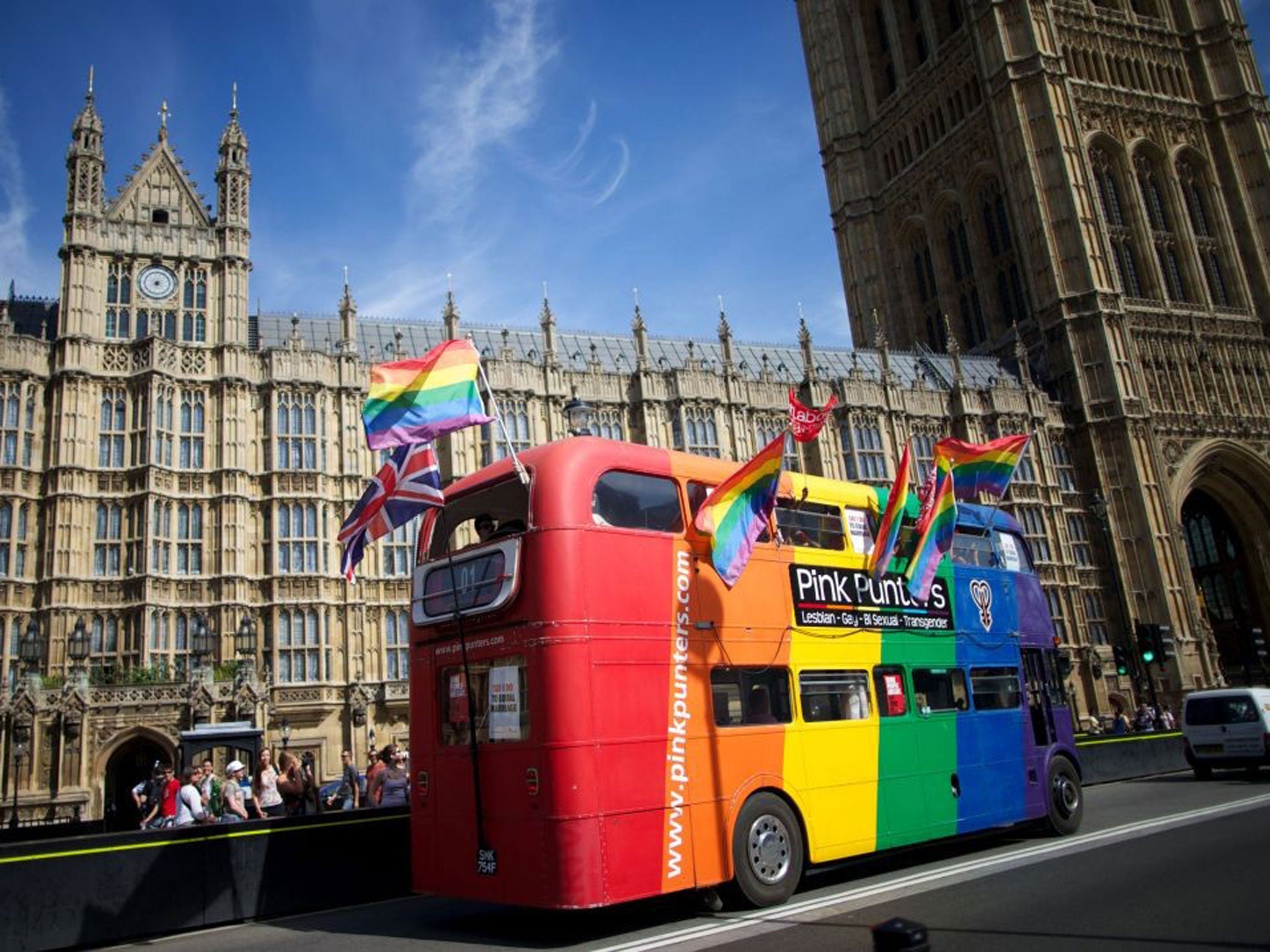Why is campus politics such a magnet for LGBT students?
Student politics is increasingly dominated by the LGBT community. This can only be a good thing, says David Wilkinson

Your support helps us to tell the story
From reproductive rights to climate change to Big Tech, The Independent is on the ground when the story is developing. Whether it's investigating the financials of Elon Musk's pro-Trump PAC or producing our latest documentary, 'The A Word', which shines a light on the American women fighting for reproductive rights, we know how important it is to parse out the facts from the messaging.
At such a critical moment in US history, we need reporters on the ground. Your donation allows us to keep sending journalists to speak to both sides of the story.
The Independent is trusted by Americans across the entire political spectrum. And unlike many other quality news outlets, we choose not to lock Americans out of our reporting and analysis with paywalls. We believe quality journalism should be available to everyone, paid for by those who can afford it.
Your support makes all the difference.Student politics? That's gay. Neither in the pejorative, nor merry, cheerful, jolly sense of the word, but quite literally in terms of orientation. When it comes to student politics, at least on a national level, LGBT individuals appear to be largely over-represented. But in 30 years time will Britain be better off for it?
A range of evidence exists suggesting that LGBT people are indeed over-represented in student political movements. In Scotland, data from the Scottish Youth Parliament shows that whilst just 6 per cent of people in Scotland admit to being LGBT, 13 per cent of the Youth Parliament there openly identify as such.
In England, where census data officially puts the number of LGBT people significantly lower, the situation appears even more pronounced. One university's Labour Students chair put it to me that 'a majority of the people' actively involved in their society were gay, whilst another regional Young Labour chair admitted his committee was 'majority-gay and bi'. The only respect in which his committee differed from the norm, he stressed, was in that almost 40 per cent of members were of some ethnic minority background. Indeed, the real diversity issue in student politics today appear not to be sexuality so much as gender or race.
The National Union of Students has seen more than its fair share of gay, Labourite men in the last decade, with Wes Streeting and Aaron Porter at the helm; themselves preceded by Andrew Pakes and current Shadow Secretary of State for Education, Stephen Twigg. Porter, prior to becoming president, was the third consecutive gay NUS vice-president for education - and for the last five years running, the position of NUS vice-president for welfare has been occupied by gay men.
Perhaps LGBT people are simply more visible within politically 'correct' or sensitive organisations, and it is outside the political arena that LGBT people are under-represented in public life. But might there be other factors at play?
Whilst specific initiatives exist to train young LGBT individuals for positions of influence and leadership, these, such as the Out for Undergraduate Leadership Summit which had its inaugural meeting this year in Washington D.C., are a relatively new phenomenon.
Garrett Hall, organiser of the summit, explains: "Prominent, out, LGBT leaders are critical to the movement because they provide role models and mentors for many aspiring change agents who historically have not seen role-models who share their life experiences. Especially in a community where one can 'choose' to be visible, it is incredibly important that role-models are visible to help the next generation mature and grow."
Students selected to attend the O4U summit do so on the back of a scholarship provided by the organisation and their sponsors, including banks like of J.P. Morgan, Goldman Sachs and Barclays, as well as consultancies McKinsey, Bain and BCG. Students in attendance included athletes, journalists, app developers, charity founders, company owners and creators of biomedical devices.
The arrival of initiatives such as this, with fewer than 25 students in attendance, and several years late on the scene, can hardly be considered the reason for the current state of student politics.
Might it be that gay students get bullied more than normal students and bullied students look for alternative means of exerting influence over their peers, resulting in increased involvement in student politics? If this is the case, then why do we not see equally disproportionate numbers of ethnic minorities involved in politics? Are gay students more competitive and driven towards positions of perceived power? Might it be that some existing prominence of gay individuals within youth politics is having a magnetic effect in attracting others in a way that seeing someone of the same race or ethnicity does not?
Whatever the reason, an abundance of LGBT influence cannot be a bad thing. It is highly unlikely to lead to anything other than more proper and full equality, both legalistically and culturally. The greater understanding of social issues that personal stakeholders bring to politics may yet result in a better generation of politicians to come.
Join our commenting forum
Join thought-provoking conversations, follow other Independent readers and see their replies
Comments